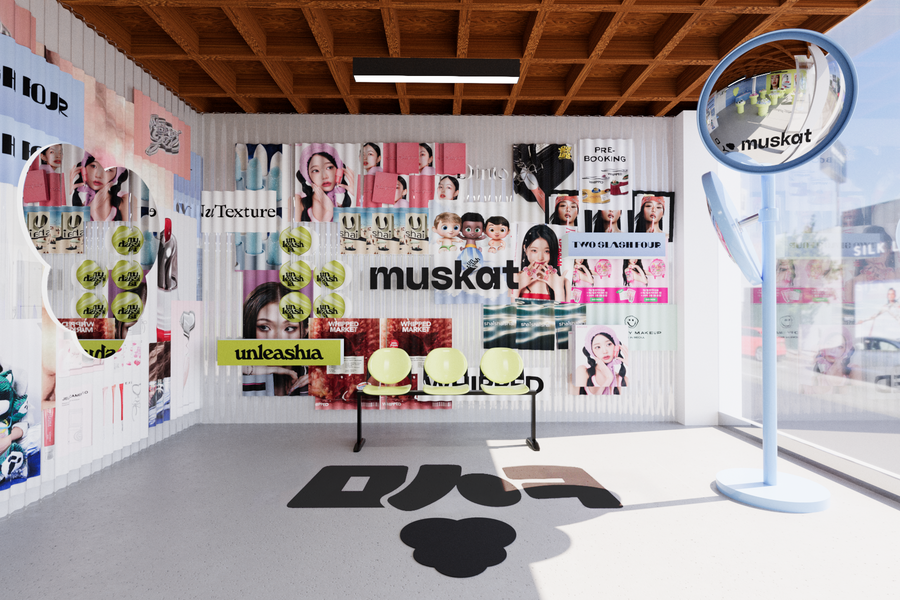Key Takeaways
- Muskat is launching a five-day pop-up in West Hollywood to introduce new South Korean beauty brands to the U.S.
- The initiative emphasizes founder-led brands and offers discounts to attract customers.
- Despite economic challenges, K-Beauty continues to grow, with U.S. sales rising by 33.4% over the past year.
Introducing New Korean Brands to the U.S.
Muskat is at the forefront of the K-Beauty movement with its newly launched pop-up in West Hollywood, promoting a selection of South Korean beauty brands that are relatively unknown in the U.S. The event features eight brands, including smaller, founder-led makeup companies such as Amuse and Unleashia, alongside skincare lines like Whipped and ShaiShaiShai.
Founder Daniella Jung, who also leads the skincare brand Nutexture, notes that this initiative, referred to as K-Beauty 2.0, aims to showcase products that may not have experienced viral marketing on social media but are popular in Korea. To attract shoppers, Muskat is offering a 20% discount on products, tiered gifts based on spending, and special welcome gifts for the first 50 customers each day.
The pop-up has drawn approximately 150 beauty influencers, including well-known figures such as Darcei Giles and Risabae, who will conduct makeup demonstrations. Beyond the pop-up, Muskat plans to assist brands with their U.S. market entry by developing tailored marketing strategies. Jung’s parent company, Most Inc., has a strong distribution network for well-known K-Beauty brands such as Cosrx and Biodance, generating substantial sales with plans for further growth.
Recognizing the formidable size of the U.S. market, Jung intends to expand Muskat by relocating from Seoul to Los Angeles and hiring a larger team in the near future. She believes that while established names like Cosrx may see their growth plateau, there is still considerable potential for emerging brands. Jung aims to enhance the appeal of K-Beauty in the U.S., particularly through makeup, which resonates with current beauty trends including the popular “clean girl” aesthetic.
Jung emphasizes that Muskat is not only about introducing brands but also preparing them for the challenges of the U.S. market, including the demand for inclusivity in product offerings. With K-Beauty facing scrutiny over shade ranges for darker skin tones, Muskat prioritizes brands like Entropy, which is launching a diverse foundation range tailored for the U.S. customer base.
The K-Beauty sector remains robust, with recent data showing a 33.4% increase in sales to $1.52 billion over the past year. Major retailers such as Ulta Beauty and Sephora have started to include K-Beauty brands in their offerings, further validating the category’s growth. Recently, the South Korean retail giant Olive Young also launched a U.S. subsidiary, aiming to establish a foothold in the competitive American market.
Economic factors, including a 10% baseline tariff on international goods, pose challenges for the industry. Companies like Glow Recipe have already begun to increase prices to offset costs associated with these tariffs. Despite current pressures, Jung’s commitment to expanding K-Beauty in the U.S. remains steadfast. She states that if tariffs climb above 10%, it could significantly impact business operations, but she views the potential for growth as a driving force.
In conclusion, Muskat’s initiative represents a fresh wave of K-Beauty brands set to enhance the American beauty landscape, with a focus on inclusivity and strategic market entry. Jung’s insights into the beauty industry’s future reflect optimism and a strong commitment to delivering innovative products to U.S. consumers.
The content above is a summary. For more details, see the source article.















